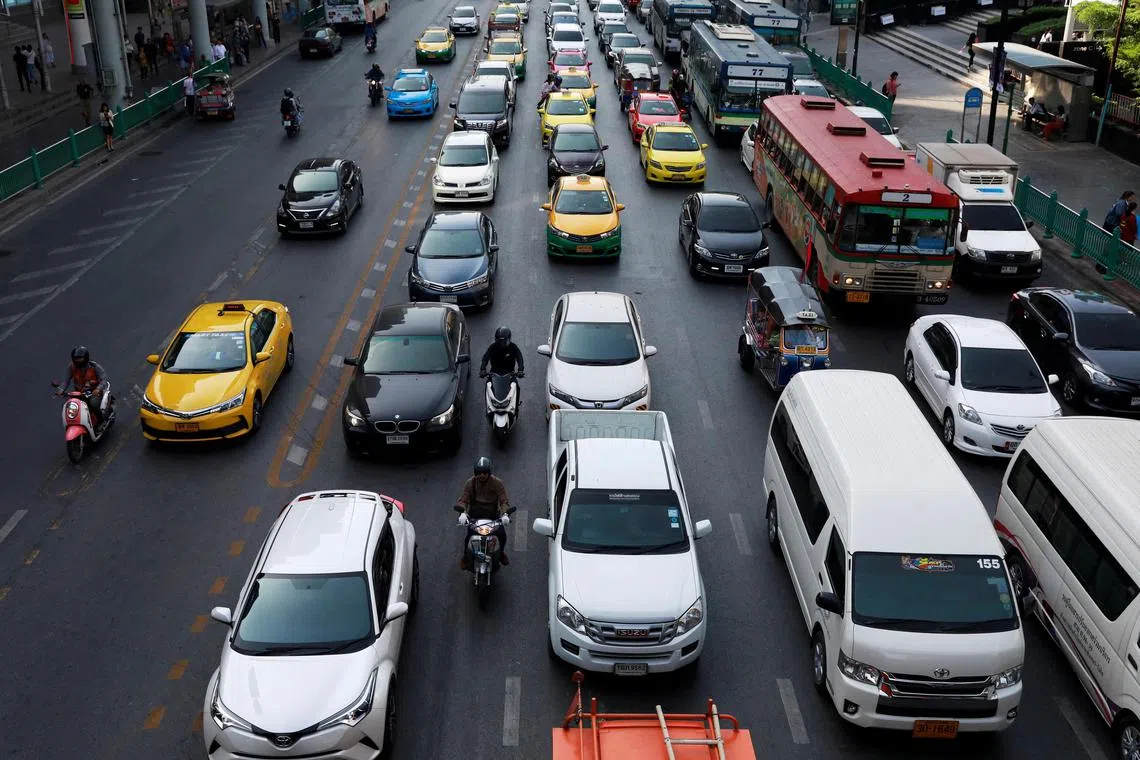Thailand eyes congestion fee to cut Bangkok pollution, traffic
Sign up now: Get insights on Asia's fast-moving developments

Bangkok was ranked 46th on a global congestion index in 2023 by navigation-device maker TomTom NV.
PHOTO: REUTERS
BANGKOK – Thailand is reviving a plan to impose congestion charges in capital Bangkok to tackle traffic and air pollution, a move that could make it the second major Asian city to implement such a policy.
The Ministry of Transport is weighing the potential benefits of the fee, identifying the areas to be brought under its purview and how much to charge, according to ministry spokesman Krichanont Iyapunya. The fees collected will be used to support the government’s plan to set a flat fare for commuter trains, he said.
The Thai capital was ranked 46th on a global congestion index in 2023 by navigation-device maker TomTom NV.
Residents in the city of 10 million people lost about 4½ days to traffic snarls in 2023, according to the TomTom report. Bangkok also suffers from severe air pollution, with readings hovering at unhealthy levels for weeks at a time due to the high use of private vehicles and burning of crop residue in nearby provinces.
Thai authorities will follow congestion tax models in cities such as London, Singapore, Stockholm and Milan, where rush-hour traffic was significantly reduced after fees were introduced, said Mr Krichanont. The Bangkok plan will have more details in 2025, he said.
Previously, a five-year joint study by Thai transport authorities and German development agency GIZ looked at the feasibility of congestion pricing in Bangkok, with charging fees ranging from 50 baht (S$1.90) to 120 baht across different city zones.
The government’s plan for a 20-baht flat rate for commuter trains will depend on the authorities buying back concessions from private companies running Bangkok’s public transit, including a network of subways and sky trains. The facilities are operated by BTS Group and Bangkok Expressway and Metro.
The authorities are mulling over setting up a 200 billion baht infrastructure fund for the plan to which the congestion fees will be channelled. The flat commuter fare is an election pledge of Pheu Thai party that leads the ruling coalition government as part of measures to lower the cost of living.
Besides the electrified trains, the Thai capital also has buses and commuter railways. But limited infrastructure for rapid mass transit means limited access for the majority of people who live outside the city’s central areas, many of whom rely on private vehicles. Bloomberg


